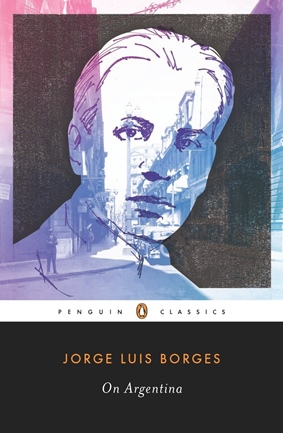Description
A literary guide to Argentina by its most famous writer
Jorge Luis Borges wrote about Argentina as only someone passionate about his homeland can. On Argentina reveals the many facets of his passion in essays, poems, and stories through which he sought to bring Argentina forward on the world stage, and to do for Buenos Aires what James Joyce did for Dublin.
In colorful pieces on the tango and the gaucho, on the card game truco, and on the criollos (immigrants from Spain) and compadritos (street-corner thugs), we gain insight not only into unique aspects of Argentine culture but also into the intellect and values of one of Latin America’s most influential writers. Featuring material available in English for the first time, this unprecedented collection is an invaluable literary and travel companion for devotees of both Borges and Argentina.
About the Author
Jorge Francisco Isidoro Luis Borges Acevedo was an Argentine short-story writer, essayist, poet and translator regarded as a key figure in Spanish-language and international literature. His best-known works, Ficciones (transl. Fictions) and El Aleph (transl. The Aleph), published in the 1940s, are collections of short stories exploring motifs such as dreams, labyrinths, chance, infinity, archives, mirrors, fictional writers and mythology. Borges's works have contributed to philosophical literature and the fantasy genre, and have had a major influence on the magic realist movement in 20th century Latin American literature.Born in Buenos Aires, Borges later moved with his family to Switzerland in 1914, where he studied at the Collège de Genève. The family travelled widely in Europe, including Spain. On his return to Argentina in 1921, Borges began publishing his poems and essays in surrealist literary journals. He also worked as a librarian and public lecturer. In 1955, he was appointed director of the National Public Library and professor of English Literature at the University of Buenos Aires. He became completely blind by the age of 55. Scholars have suggested that his progressive blindness helped him to create innovative literary symbols through imagination. By the 1960s, his work was translated and published widely in the United States and Europe. Borges himself was fluent in several languages.In 1961, he came to international attention when he received the first Formentor Prize, which he shared withSamuel Beckett. In 1971, he won the Jerusalem Prize. His international reputation was consolidated in the 1960s, aided by the growing number of English translations, the Latin American Boom, and by the success ofGabriel García Márquez's One Hundred Years of Solitude. He dedicated his final work, The Conspirators, to the city of Geneva, Switzerland. Writer and essayistJ.M. Coetzeesaid of him: "He, more than anyone, renovated the language of fiction and thus opened the way to a remarkable generation of Spanish-American novelists."
